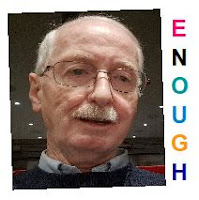When we formed the Tutor/Mentor Connection in 1993 our goal was to build an information base consisting of "all that was known" of volunteer-based tutor, mentor and learning programs and apply that knowledge to expand the availability and enhance the effectiveness of these services to children throughout the Chicago region. This led to building a list of Chicago area programs that we initially published in a printed Directory (1994-2003), then an on-line Directory (2004-2018) and that we used to invite programs to gather and share ideas through May and November conferences that we hosted in Chicago (1994-2015). It's still available on this page of our website.
As I wrote in last week's post, the www.tutormentorexchange.net site has been reconfigured after being moved to a new server. That results in a revised look and feel. But it also meant that I've had to fix a lot of broken links and formatting problems.
Yesterday I updated all the links on the "In the News" page shown in the two graphics posted below. These are media stories generated through the strategy we launched in 1993.
It's important to keep in mind that when we formed a new organization in late 1992 our first goal was to create a volunteer-based tutor/mentor program that would continued support to 7th graders who had aged out of the program hosted at the Montgomery Ward headquarters in Chicago (which I led from 1975 to October 1992) to help them move through high school. We named that Cabrini Connections. As we launched that strategy in January 1993 we were also in the beginning stages of building the second strategy, which became the Tutor/Mentor Connection.
Thus, over the 19 years that I led this two part strategy our first priority was always what we called the "Kids' Connection". This map shows our location in the Near North part of Chicago and the location of other tutor, mentor and learning programs in other high poverty areas of Chicago.
The media stories shown on the "In the News" page and the archive show how successful this strategy was despite having consistent challenges caused by the loss of our major supporter, Montgomery Ward, in 2000, then the economic downturns of the 9/11/2001 attack, and the financial collapse of 2008-10, which led to the split in mid 2011 which led to me forming the Tutor/Mentor Institute, LLC to keep the T/MC available in Chicago and help similar efforts grow in other cities.
In most of the articles posted on this blog I've encouraged programs in Chicago and in other cities to embrace a "Tutor/Mentor Connection" type strategy and for universities to lead it. Doing so can draw more support to your own organization, while helping your city fill all high poverty areas with needed youth serving programs.
If not, then why not put together a team and duplicate it. The problems are still with us, and may grow more severe in the coming months and years.
Share you thoughts and resources with me on LinkedIn, Facebook, BlueSky, Twitter, Instagram and other sites. See links to my social media on this page.
If you want to recognize, or reward, or support my efforts, please visit this page and make a contribution to help me keep doing this work.
Thank you for reading. Good luck to you.












































